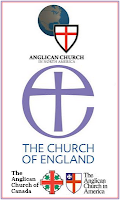Archbishop Fred Hiltz, Anglican Church of Canada
November 30, 2012 - The John Wesley Centre, a PWRDF project in South Africa, cares for children whose parents have died of HIV/AIDS.World AIDS Day confronts us with the staggering statistic that in the past 30 years more than 30 million people have died of AIDS, and that 34 million still live with HIV today. In combating HIV/AIDS we have such a long way to go. However when we can, we should celebrate progress. This year's International AIDS Conference noted considerable advances in better medication, greater access for many more people to antiretroviral therapy, and major achievements in preventing the spread of HIV at birth.
World AIDS Day is an occasion to pray for all those who live with HIV and AIDS and all who care for them. It's a day to stand in solidarity with all who put so much energy in preventing the spread of this virus through comprehensive education programs.
Through the Primate's World Relief and Development Fund (PWRDF) our church continues its commitment to HIV/AIDS-related projects in a number of places. Our work in Keiskamma, South Africa is focussed on prevention of the transmission of HIV from mother to child. In El Salvador we support youth initiatives in preventing the spread of HIV. In Burundi we have helped build clinics for HIV/AIDS in Bujumbura and in Ramunge.
This year's Gift Guide in support of the ministries of The Anglican Church of Canada highlights a wonderful project supported through PWRDF. The John Wesley Centre in Johannesburg cares for children orphaned through the death of one or both parents to AIDS. They receive a hot meal every day. They get help with their homework and they enjoy a safe place to play. Forty dollars provides for a week of such tender loving care.
As we observe World AIDS Day this year, can I suggest that we light candles and offer prayers and that we offer gifts and light up the faces of children.
+Fred
Archbishop and Primate
The 56-year-old cleric is known for his courage and deeply-held faith, and his experience in business is viewed as bringing the Church of England greater credibility in public debate about ethics in the worlds of finance and the City.
Bishop Welby, who read law and history at Trinity College, Cambridge, began his career in the oil industry based in Paris and London, where he worked on West African - mainly Nigerian - and North Sea projects.
He became a group treasurer in a company called Enterprise Oil, before
resigning in 1987 after 11 years in the industry to train for the Anglican
priesthood.
''I was unable to get away from a sense of God calling,'' he said in an interview.
He was made a deacon in 1992 after training for ordained ministry at Cranmer Hall in Durham where he took a degree in theology, serving later as a curate in Nuneaton in the Coventry Diocese.
At Coventry Cathedral he became involved in conflict resolution and peace building in war-torn areas around the world, continuing this work after he was made Dean of Liverpool in 2007.
Bishop Welby marks the first anniversary of his enthronement as Bishop of Durham, the fourth most important post in the Church of England, later this month.
On the evangelical wing of the Church of England, he is known for his sense of humour and self-deprecating manner.
Asked in a Guardian interview in July for his comment after he was tipped as the next Archbishop of Canterbury, Bishop Welby said that he did not want the job: ''Let's be clear, I'm one of the thicker bishops in the Church of England,'' he said.
His modest, unassuming manner and decision to opt for clerical black rather than bishop's purple belie a colourful family background.
His father was a businessman who traded in whisky during the prohibition years in America and then became an executive for a company that survived the alcohol ban by selling communion wine. He was later to move in the same circles as the Kennedy family.
Bishop Welby's mother was Winston Churchill's private secretary. He is also related to Rab Butler, the former Conservative deputy prime minister - Sir Montagu Butler was Rab Butler's father and also the father of Bishop Welby's grandmother.
Bishop Welby and his wife Caroline have had six children, one of whom - their seven-month-old daughter and first-born, Johanna - died in a car crash in France in 1983.
''It was a very dark time for my wife Caroline and myself, but in a strange way it actually brought us closer to God,'' he said in an interview.
Bishop Welby served for two years as chairman of an NHS hospital trust and was appointed in July to the parliamentary commission on banking standards investigating the Libor scandal.
He has maintained his interest in conflict resolution work and has made frequent and often dangerous trips to Nigeria as part of this work. His extensive knowledge of the Anglican Communion, including Nigeria, is expected to stand him in good stead as Archbishop of Canterbury and spiritual leader of the Anglican Communion.
During a General Synod debate about the plight of persecuted Christians in Nigeria, it was revealed that Bishop Welby had a narrow escape on a recent visit to the country.
The Archbishop of York Dr John Sentamu said: ''My heart is in my mouth every time he goes to Nigeria.''
Bishop Welby has listed ''most things French'' and sailing as his hobbies.
Source: The Telegraph















